2019 All-America City Finalist – Dubuque, IA
Application Summary for the All-America City Awards:
Dubuque strives to be a resilient, equitable community of choice.
It does so by including residents, private, non-profit, and public sectors in the creation and initiation of their comprehensive plan, Imagine Dubuque. The plan was developed via input collected at community events and during small focus groups. Extensive collaboration and engagement also went into the development of Sustainable Dubuque, a model of economic prosperity, environmental integrity, and social/cultural vibrancy which provides residents and businesses with information and action steps to save money and resources, improve the environment and economy, and improve their health.
Three project examples showing how this community leverages civic engagement, collaboration, inclusiveness and innovation to successfully address local issues:
1.) Health Care of All
Dubuque has been adding health services for its population to address needs identified in the Community Health Needs Assessment. The CHNA was updated through a public engagement process led by a steering committee of stakeholders.
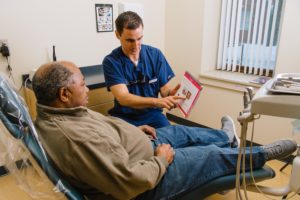 Current and planned service enhancements include:
Current and planned service enhancements include:
Expansion of Crescent Community Health Center’s Location- The expansion will facilitate the care of an estimated 20% more patients and provide mental health and substance abuse services through collaboration with community partners.
Establishment of The Patient/Family Advisory Council– Through this council of patients, the Crescent Board, and the surrounding community, patients can provide input directly to the board about social determinants of health and health care needs.
Pacific Islander Health Project- A community-based committee developed an engagement strategy to improve the accessibility to health care by the Marshallese and Pacific Islander population.
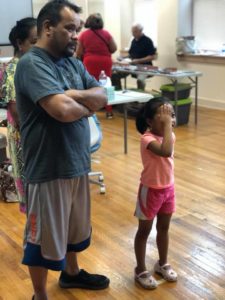
Brain Health Task Force- A stakeholder group was formed to provide education to providers and to increase community awareness of brain health. Additionally, the group is working to establish an access center in Dubuque for individuals with urgent mental health needs.
Mobile Crisis Unit- Dubuque police requested assistance with responding to mental health crisis incidents. A stakeholder group developed a mobile crisis unit which provides a much better resolution for individuals in mental health crisis, as well as officers.
Inmate Wraparound Program– The program identified issues impacting jail inmates with acute brain health behaviors such as inmates staying in jail too long, jeopardizing Medicaid status, and inmates released into the community without support.
2.) Bee Branch Creek Watershed Restoration & Activation
In 2003, a 16-member Bee Branch Citizen Advisory Committee was formed to determine a means to safely channel water out of flood prone neighborhoods which had been consistently damaged during several floods over the course of a decade. After committee, public, and neighborhood meetings, the committee’s recommendation to create an open channel and restore the Bee Branch Creek was adopted.
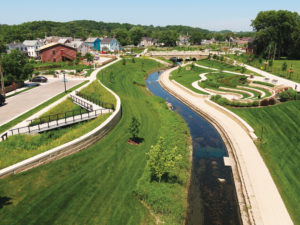
The Lower Bee Branch Creek was completed in 2011 and the Upper Bee Branch Creek was finished in 2017. The creek stretches through two neighborhoods, where most residents are low to moderate income. The restored creek serves as a linear park with a multi-use trail, scenic overlooks, play areas, a community orchard and garden. Most importantly, in 2017, 4.9” rain fell in less than 24 hours and thanks to the completed Bee Branch Creek, property damage was largely avoided.
However, many residents are still living with residual health and safety issues from water intrusion. In 2016, the City of Dubuque was awarded a grant for the Bee Branch Healthy Homes Resiliency Program. The program is available to both property owners and tenants who are low- to moderate-income. A variety of repairs and renovations are being made to decrease health and safety issues and make homes more resilient to future flooding.
In addition to improving physical environments, every participating household meets with a Visiting Nurses Association home advocate. The advocates identify barriers the participants are facing and connect them to local resources to help them overcome those challenges.
3.) Dubuque Eats Well
Today, Dubuque is ranked last in the nation in terms of fruit and vegetable consumption. Obesity has been identified as a top community health concern, and in 2006, Dubuque residents identified Healthy Local Foods as one of twelve Sustainable Dubuque principles during a community visioning process.
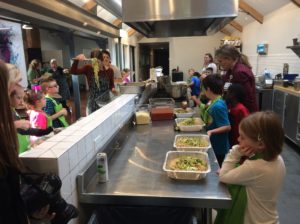 To combat these trends, and to develop a collective impact model to increase healthy food access, the Dubuque Eats Well (DEW) coalition was formed and has since implemented several healthy food initiatives, including:
To combat these trends, and to develop a collective impact model to increase healthy food access, the Dubuque Eats Well (DEW) coalition was formed and has since implemented several healthy food initiatives, including:
Double Up Food Bucks- provides Supplemental Nutrition Assistance Program (SNAP) users with a dollar-for-dollar match for purchasing local fresh fruits and vegetables at the market from local farmers.
Dubuque Rescue Mission Community Garden- provides produce for the kitchen of a men’s homeless shelter in downtown.
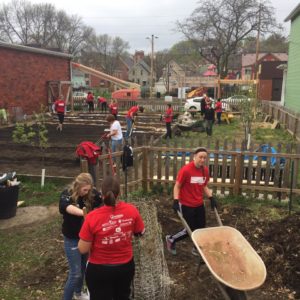
Dubuque Community Garden Collaboration- a partnership of community gardeners who share resources and work together to expand opportunities to grow food in Dubuque.
Convivium Urban Farmstead- transformed a derelict greenhouse into an urban farm and began reaching out to neighbors to plant small raised beds in their yards to provide accessible produce.
School Based Food Pantries- provide fully functioning pantries to local schools that distribute fresh produce, dairy, meats, grains and dry products.
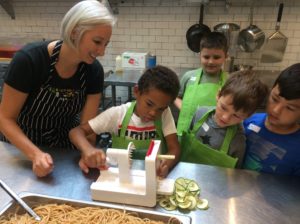 Meals for Summer Reading & Recreation Programs- Boys & Girls Club partnered with United Way to serve over 17,000 meals during summer programs.
Meals for Summer Reading & Recreation Programs- Boys & Girls Club partnered with United Way to serve over 17,000 meals during summer programs.
Multicultural Family Center (MFC)- hosts individuals from around the world who share experiences and cook together. MFC also serves as a food pantry.
Some Related Posts
Thank You to Our Key Partners



